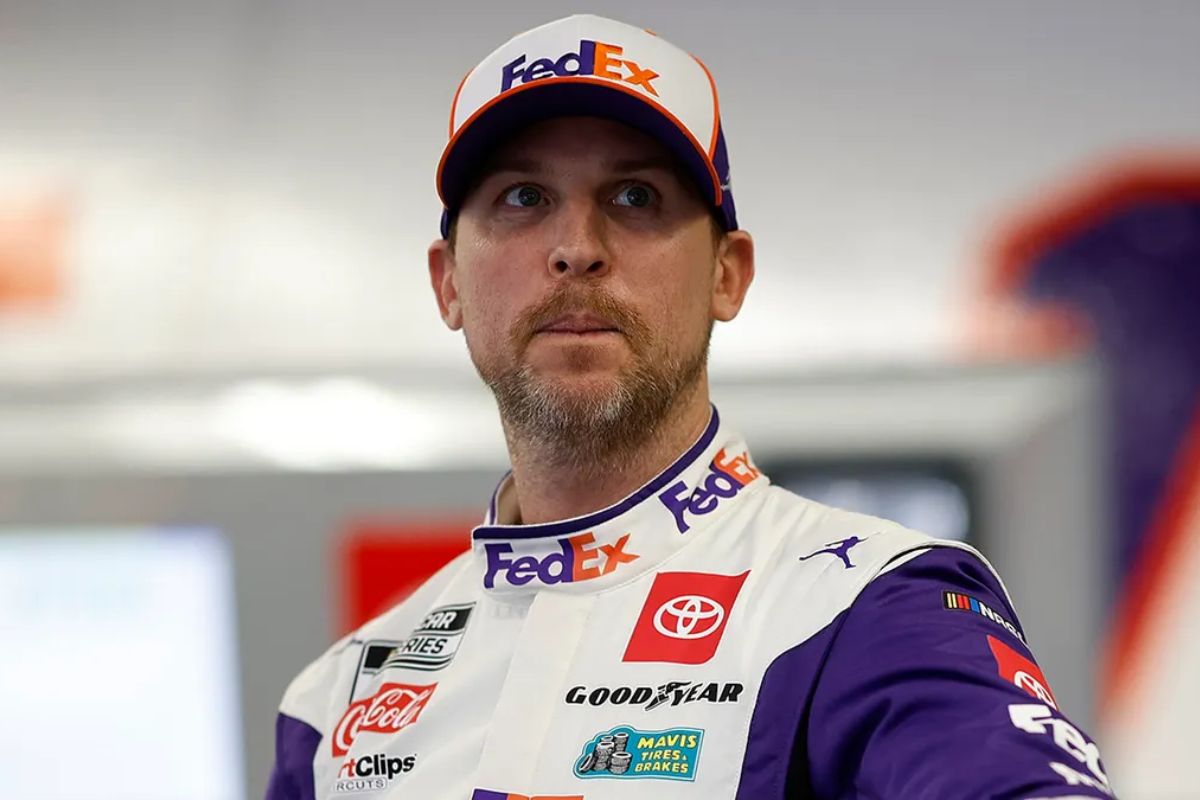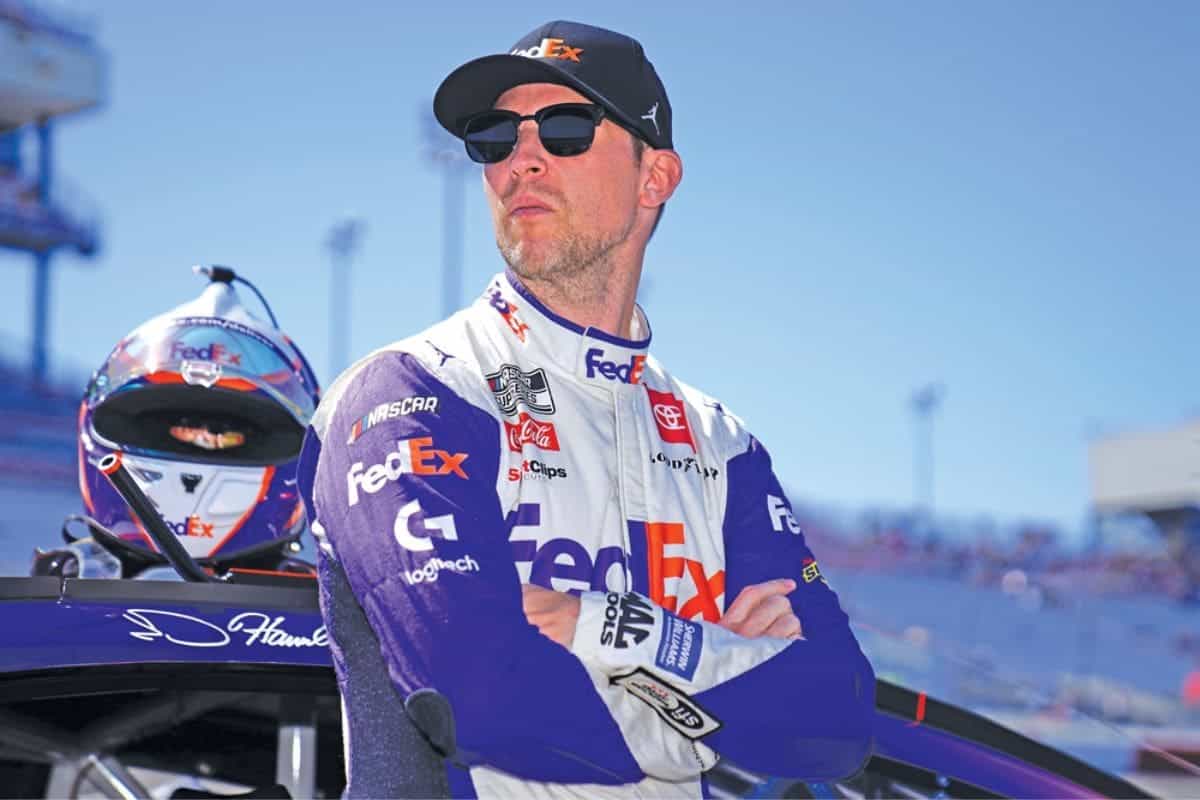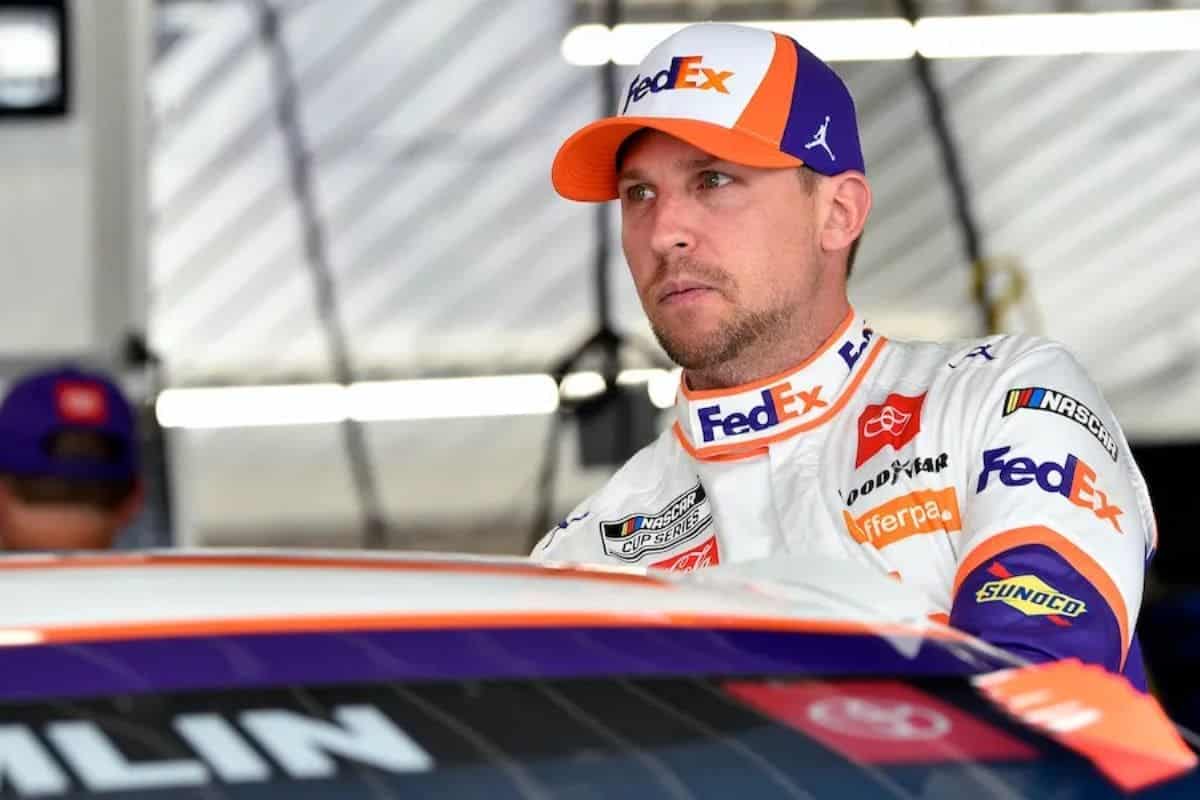Denny Hamlin’s Age Excuse: Denny Hamlin’s struggles at road course events can be linked to his age affecting reflexes and adaptability on challenging tracks. Hamlin has acknowledged physical limitations impacting simulator use and facing passing execution challenges. Emphasizing balance between speed and execution is essential. Understanding the variations of road course racing demands adaptability in racing style. Understanding Hamlin’s reflection on performance and age sheds light on his approach. Further insights into his racing strategy reveal meticulous preparation and leveraging extensive experience. Looking ahead, skill development and performance analysis will play pivotal roles. Hamlin’s journey encompasses a combination of challenges and strategic maneuvers for success in NASCAR.
Key Takeaways
- Age can impact reflexes and adaptability, affecting performance on road courses.
- Continuous improvement of road course skills is crucial regardless of age.
- Mental sharpness and resilience are essential for overcoming age-related challenges.
- Tailored training regimens targeting road course skills can mitigate age-related limitations.
- Track adaptation and mastering the variations are paramount for success, irrespective of age.
Denny Hamlin’s Struggles at Road Course Events
Denny Hamlin consistently faces formidable challenges when competing at road course events in NASCAR, showcasing a struggle that persists despite his skills and the competitive edge of the Toyota Camrys in the field. One significant aspect that could be contributing to Hamlin’s difficulties at road courses is the age factor. As drivers age, their reflexes and adaptability can diminish, which are essential skills when maneuvering the twists and turns of a road course. At 40 years old, Hamlin is competing against younger drivers who may have a slight edge in these areas.
Skill improvement is another key factor to take into account. While Hamlin is indisputably a talented driver with multiple wins in his career, road course racing requires a unique set of skills that may need continuous improving. Enhancing his proficiency in braking, cornering, and overall road course techniques could be pivotal for Hamlin to overcome his struggles in these events.
Starting from the eighth spot at the Austin, Texas race, the No. 11 JGR car wasn’t quite up to speed with the frontrunners. Despite briefly leading the pack after clinching a stage 2 victory, this was largely thanks to the different pit strategies employed by the leaders. However, by the race’s end, Hamlin had dropped back to 14th place, a significant setback considering his starting position.
The mental game also plays a critical role in road course racing. Maintaining focus, managing frustration, and staying calm under pressure are crucial elements for success. Hamlin’s ability to stay mentally sharp and resilient throughout the race could have a significant impact on his performance.
Furthermore, a tailored training regimen that specifically targets road course skills could benefit Hamlin. Physical fitness, endurance, and muscle memory are vital components that can be enhanced through targeted training programs.
Lastly, track adaptation is paramount. Each road course has its variations and challenges. Hamlin’s ability to adapt quickly to the specific demands of each track could be a deciding factor in his performance. Mastering the intricacies of different road courses through practice and simulation could provide Hamlin with a competitive advantage.
Hamlin’s Reflection on Performance and Age
Is there a correlation between performance and age that Denny Hamlin is starting to acknowledge in his road course struggles? In a recent conversation with his co-host Jared Allen, Hamlin opened up about the impact of age on his racing performance. He highlighted the physical limitations he faces, which prevent him from spending extended periods in simulators essential for mastering road course techniques. This acknowledgment sheds light on the challenges faced by veteran drivers as they maneuver through the tiring demands of NASCAR competition.
Moreover, Hamlin pointed out that while he possesses the necessary speed on road courses, executing passes has been a significant hurdle for him. Unlike on oval tracks where he excels at setting up passes, the intricacies of maneuvering on road courses have posed passing difficulties for him. This distinction shows the appropriate skill set required for success in different racing environments and the adaptability needed from drivers to excel across various track types.
As Hamlin reflects on his struggles, the balance between speed and execution emerges as a critical factor in his road course performance. Handling these challenges requires a deep understanding of the variations of road course racing and the ability to adapt one’s racing style to overcome passing difficulties. Hamlin’s candid assessment offers valuable insights into the intersection of age, experience, and performance in the competitive world of NASCAR.
“Can you even run one lap fast? I’ve been able to do that, and even my fastest lap of the race was one of the top three. I was running 18th when I was running my fastest lap. I’ve been able to do that, but it’s the consistency that I struggle with. Once I get on someone’s a*s how do I set up the passes? Things that I’m really good on ovals, it doesn’t translate to being good on the road courses.”
“I would say it plays a factor because I can’t run in a simulator five days a week, my body will not let me do that… And when you ask is age a factor? absolutely, I mean coming off shoulder surgery, and I can’t overwork myself. My body hurts in a lot of places for a few days after the race.” – (Hamlin replied to Jared Allen)
Hamlin’s Focus on Playoff Contention
Hamlin’s strategic focus on securing multiple wins during the regular season aligns with his pursuit of playoff contention in NASCAR, emphasizing the importance of leveraging his strengths in short track races to maximize his championship prospects. With a playoff mindset, Hamlin recognizes the significance of accumulating victories to solidify his position in the championship race. By improving his competitive edge in short tracks, where he has historically excelled, he positions himself strategically to amass the necessary points for a strong playoff run.
His race strategy reflects a calculated approach to the season, prioritizing tracks where he can capitalize on his strengths and secure wins. This deliberate allocation of resources shows his championship pursuit, as each victory not only adds to his playoff points but also strengthens his confidence and momentum heading into the postseason. Hamlin’s focus on short tracks showcases his understanding of the importance of consistent performance in venues where he has a proven track record of success.
In steering through the NASCAR season, Hamlin’s emphasis on playoff contention through strategic race planning highlights his commitment to optimizing his chances for championship glory. By staying true to his strengths and maintaining a targeted approach to securing wins, he sets himself up for a compelling playoff campaign filled with promise and potential success.
“I’m taking this weekend and hauling a*s, ready to go to Richmond because we got next handful of races. My crew chief reached out to me for the next five or six races. Man, man like is our resources better spent not burning you out trying to chase another half a second on a road course? You are still gonna be another half a second off. Our resources are better spent focusing on the other tracks we know we can go win.” – (Hamlin)
Insights into Hamlin’s Racing Strategy
In crafting his racing strategy, Denny Hamlin strategically navigates the NASCAR season through a calculated approach that emphasizes optimizing performance and securing pivotal wins. Race preparation is a cornerstone of Hamlin’s strategy, where meticulous planning and attention to detail play a significant role in his on-track success. His commitment to understanding the variations of each track, coupled with a focus on mental toughness, allows him to adapt swiftly to changing race conditions and competitor strategies.
Hamlin’s extensive driver experience is a key asset that he leverages to gain a competitive edge. Years of racing at the highest level have honed his instincts and decision-making abilities, enabling him to make split-second choices that often make the difference between victory and defeat. His track familiarity further enhances his performance, as he capitalizes on past successes and learns from previous setbacks to refine his racing approach.
Performance consistency is paramount in Hamlin’s strategy, as he aims to deliver strong results race after race. By maintaining a high level of competitiveness throughout the season, he positions himself as a formidable contender for playoff contention and championship aspirations. Hamlin’s insights into his racing strategy offer a glimpse into the calculated and methodical approach taken by elite NASCAR drivers in their quest for success on the track.
Looking Ahead for Denny Hamlin
With the NASCAR season unfolding, anticipation surrounds Denny Hamlin’s upcoming performances, particularly as he gears up for the challenges posed by the upcoming short-track events. As Hamlin prepares for what lies ahead, several key factors will shape his journey on the track:
- Future prospects: Hamlin’s future in NASCAR will greatly depend on how he navigates the upcoming races and rebounds from recent setbacks.
- Skill development: Continuing to enhance his skills, especially on road courses, will be essential for Hamlin to remain competitive and secure strong finishes.
- Performance analysis: Hamlin, along with his team, will likely explore deeply into performance data to identify areas for improvement and capitalize on his strengths.
- Competition assessment: Understanding the strengths and weaknesses of his competitors will be vital for Hamlin to strategically position himself during races.
As Hamlin sets his sights on the upcoming challenges, goal setting will play a pivotal role in guiding his efforts. The NASCAR landscape is dynamic, and Hamlin’s ability to adapt and evolve will be critical in determining his success moving forward. Fans and analysts eagerly await to witness how Hamlin tackles the obstacles ahead and whether he can translate his potential into victories on the track.
News in Brief
Denny Hamlin’s struggles at road course events have brought into focus his reflection on performance and age. Despite his challenges, Hamlin remains focused on playoff competition and continues to adapt his racing strategy.
Moving forward, it will be interesting to see how Hamlin addresses these issues and works towards achieving success on road courses in the future.
Our Reader’s Queries
Q. Has Denny Hamlin ever won on a road course?
A. Hamlin clinched the inaugural road course triumph of his career by commanding the lead for just 10 laps out of the 90-lap race. However, it was these crucial laps towards the race’s climax that proved to be the most pivotal and defining for his victory.
Q. What age did Denny Hamlin start racing?
A. Hamlin embarked on his racing journey in 1988, kicking off at the tender age of 7 with go-kart racing. By the time he reached 15 in 1997, he had already achieved a significant milestone by securing victory in the WKA Manufacturers Cup, showcasing his early prowess on the track.
Q. What is Denny Hamlin driving?
A. Denny Hamlin pilots the No. 11 Toyota for the esteemed Joe Gibbs Racing team in the NASCAR Cup Series. Beyond his role with JGR, Hamlin also holds co-ownership of 23XI Racing alongside NBA icon Michael Jordan. Across 17 full seasons leading up to 2023, he has amassed an impressive tally of 52 victories, notably clinching prestigious wins in marquee events such as the Coca-Cola 600 in 2022, the Daytona 500 in 2016, 2019, and 2020, as well as the Southern 500 in 2010, 2017, and 2021.
Q. Did Bill Elliott ever win on a road course?
A. Bill Elliott secured his inaugural NASCAR Cup Series victory on November 20, 1983, at the challenging Riverside International Raceway road course, marking a significant milestone in his esteemed racing career.
ALSO READ: Denny Hamlin Teases Full-Time 23XI Racing Shift After 19-Year JGR Run




